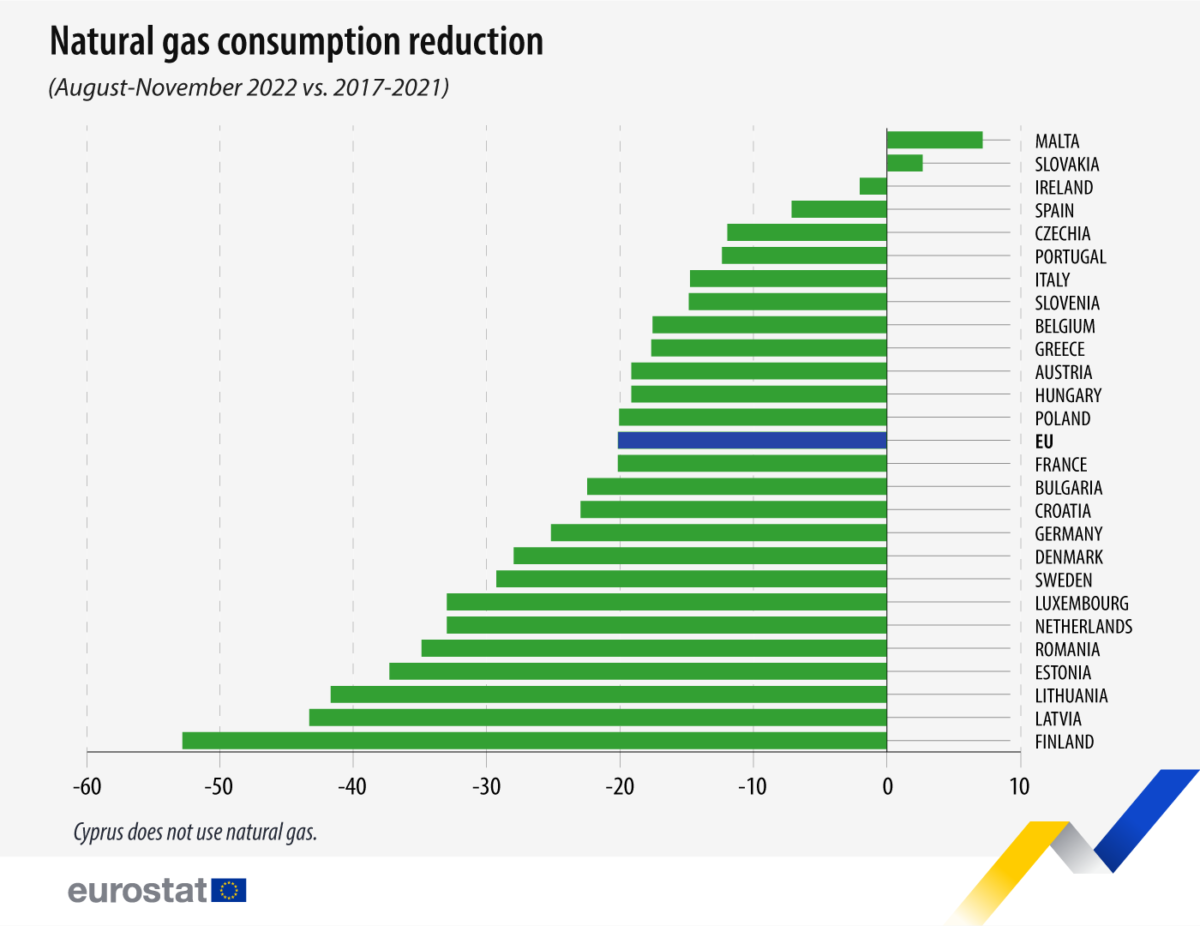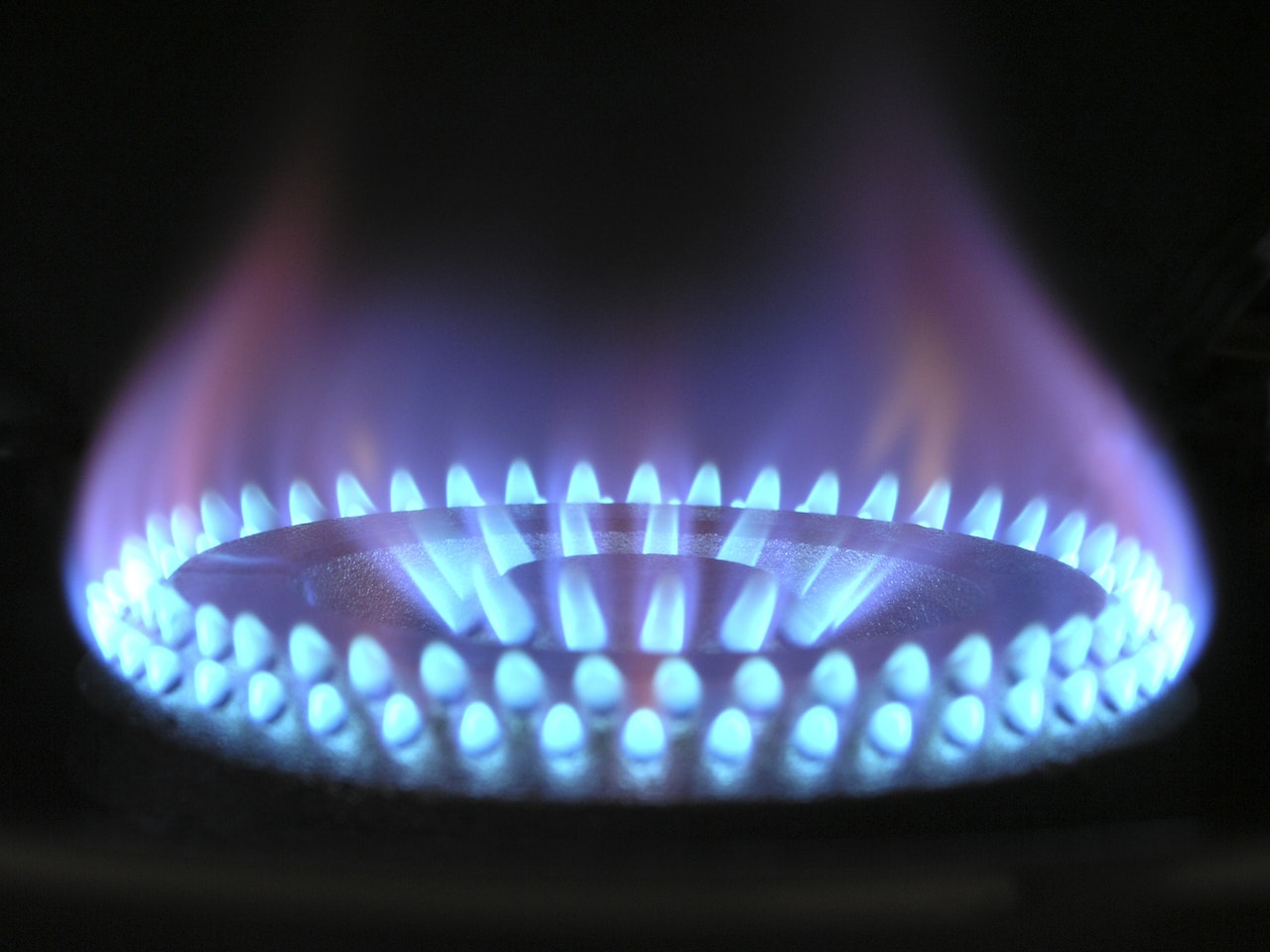Since the Russian invasion of Ukraine started, Europe has been scrambling to secure new energy suppliers, topping up stockpiles and introducing consumption-reducing measures amidst record-high and fluctuating prices. Malta, however, seems to be approaching the situation differently from its partners.
Across the European Union, the consumption of natural gas dropped an average of 20.1 per cent in August-November 2022, going beyond the target reduction of 15 per cent to reduce dependence on Russian fossil fuels. Finland was the best performer, having reduced its consumption by 52.7 per cent, while Malta appears to have gone the other way, increasing consumption by 7.1 per cent.

This comes as a surprise, as according to the latest Eurobarometer survey, more than 80 per cent of respondents said everyone should make an effort to reduce consumption during peak hours. However, this does not seem to be the case in practice.
With Malta’s consumption of natural gas on the increase, the amount the Government spends on subsidising energy bills will have to move in tandem.
Thus far the Government is expected to have spent around €400 million to keep energy prices stable, and has budgeted to spend at least €600 million in 2023, i.e., roughly 10 per cent of the country’s expenditure on keeping energy prices stable.
In spite of the high cost borne by taxpayers, there have scarcely been any incentives in Malta to reduce energy consumption, both by households and even businesses.
Prior to the presentation of next year’s budget the Malta Chamber had presented Government with a list of proposals to reduce energy consumption, such as capping subsidies for units which go over and above the eco-reduction entitlement. Furthermore, the Malta Chamber also proposed creating VAT incentives to replace appliances with more energy-efficient ones, and also to liberalise the energy market, allowing competition to drive down prices.
However, Prime Minister Robert Abela completely ruled out capping energy prices on excessive users, saying, “The reality is that if you are going to raise the price of energy for higher categories of earners, the burden will be felt even by lower earners.”
Currently, the only pressure on the Government to push for energy-saving incentives is the hefty bill to keep prices stable, however, that alone does not seem likely to trigger a change in direction since the debt-to-GDP ratio is expected to remain below the EU’s 60 per cent limit.
On the domestic front, only the business community has been vocal, whereas on the European level, Malta has achieved exemptions from any voluntary and mandatory agreements to reduce electricity consumption.
The outcome is that there is nothing to discourage excessive use of energy by households and businesses, even though the results of the Eurobarometer survey show that the overwhelming majority does have an appetite to cut consumption.
Inspiration could be taken from other countries. France, for example, is encouraging shorter shower times and switching-off of appliances, and Germany has turned off all illumination of monuments and public buildings, and limited heating of Government buildings to 19°C. Whether the Maltese Government will take any steps to discourage consumption, even if only voluntarily, remains to be seen.
Two years since its birth, Moneybase features on Microsoft’s Customer Stories
Moneybase has now just been featured on Microsoft’s latest Customer Stories
Finance Minister confirms continuity of food and energy subsidies
Spending on food and energy subsidies as a percentage of the GDP will be at 0.7% in 2025
MHRA congratulates Glenn Micallef on EU role, highlights positive impact on Malta’s tourism and cultural sectors
The lobby group emphasised that Malta’s cultural assets and sports scene are key factors in attracting visitors and fostering economic ...






